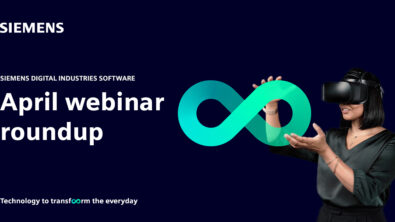How the shift toward smart, connected products impacts startup companies

As interest in traditional, mechanical products fizzles and consumers demand more sustainable and connected technology, the level of innovation in today’s marketplace is unprecedented. Smart, connected products such as Roomba vacuums and Ring doorbells are widely adopted technology in households as consumers embrace the next generation of design and practicality.
Product development for startup programs
This shift in technology is driving changes in product development requirements for manufacturers of all sizes. Smart, connected products will require more sophisticated electronics and onboard software than what we see in traditional product design.
The innovation that comes with this shift will require many startup companies to expand their competencies beyond mechanical design to include other engineering domains, such as electronics, electrical distribution systems, embedded systems, software and Internet of Things (IoT).
Designing products with IoT connectivity will also require a significant investment in different levels of technology to ensure success.
Challenges for startup programs
This next level in technology requirements will bring new challenges to startup programs as they are forced to manage the growth, coordination and complexity of the organization. As seen in this infographic, IoT connected devices are growing rapidly with no plans to slow down:

Other drivers forcing startup companies to make changes
While the shift to smart connected products is one of the top drivers forcing startup companies to make changes in their development processes, there are several others that Chad Jackson from Lifecycle Insights covers in this short clip from the on-demand webinar Building a sound digital foundation for hardware startups:
A strong digital foundation
With so many drivers of change affecting the product development process of startup programs, maintaining a comprehensive digital twin can help many companies build a strong digital foundation for the future.
A digital twin brings together processes and helps bridge the gaps between software and hardware as well as different departments. Teams can work on the same iterations, at the same time, ensuring faster and more efficient design and decision-making. Startups and small businesses who embrace this concept can reduce time-to-market and work with greater efficiency. With a comprehensive digital twin, startup companies are able to reduce overhead with fewer prototypes, fewer tests, and less waste during production.
To learn more about how your startup company can ensure success with digital software, watch the on-demand webinar or read the ebook by Lifecycle Insights:
Learn more about growing your startup to its full potential with Siemens software solutions for startups.
Check out the other blogs in this series about building a strong digital foundation for startups:
A Startup Company Dilemma: Adopting Change to Ensure Success
How to Solve Complexity Issues Facing Startups
Why You Need a Stable Digital Foundation for Your Startup Company


